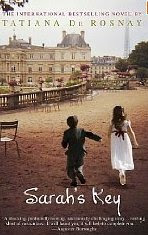One of the low points of my Marine Corps years was a week of Winter Survival/Escape and Evasion Training in a gruesome place called Pickle Meadows. For half of the week we were in the wilderness hunting for food (mice and porcupines mostly, after the rabbits teased us to near madness) and trying to evade “aggressors” whose mission was to capture and place us in a simulated POW camp. It didn’t matter if we managed to evade the dread aggressors – and my team did. In the end everyone was thrown into the POW camp.
In the camp the enemy couldn’t really torture us, but it was hard to tell the difference at the time. The temperature was near zero degrees and we were forced to remain awake and on our feet for two days. The whole thing was supposed to give us an idea of what it would be like to be captured and endure extreme discomfort while refusing to answer an interrogators questions. The worst part was being jammed into a pine box about the size of a large golf bag for refusing to give the interrogator anything but name, rank, and serial number. At first it seemed bearable but that lasted about 5 minutes. Then it became the incredible shrinking box – a real-life Edgar Allen Poe torture device. Every bone pressed hard against the ever shrinking wooden box – forehead, elbows, knees, ankles, hips, knuckles, you name it, it hurt.
The current equivalent of the incredible shrinking box is an economy seat on a full airplane crossing the Pacific Ocean. It may not kill you but there are times it feels like it will. Sixteen hours in that seat is an eternity. The air is as dry as a popcorn fart and the seats are designed for dwarfs. The food is rarely edible, and service is never on the Nordstrom model. Asian airlines have seats designed for Asians. My last trip on Japan Airlines I sat side-saddle for six hours because with my butt against the back of the seat my knees still penetrated four inches into the seat in front of me. American carriers give a little more legroom and a lot less service. Forget Social Security and Medicare, if there is one entitlement program that needs adjustment it is the salary and benefits package for fat old flight attendants who snarl when asked for water and won’t get out of their rest seats mid-flight because their contract ensures them a “rest period.”
I may be sexist in this regard, but Asian airlines do know how to do it. On the flights from Seattle to Seoul and on to Saigon last week the Asiana flight attendants were young, alert, attentive, solicitous, and genuinely interested in satisfying needs. They weren’t gorgeous but they were attractive and so similar in body type, hairstyle, makeup,and uniform accessories that it was difficult to tell them apart. And – they never ever stopped patrolling the aisles. I was squirming in my seat for fourteen of those hours and they never stopped smiling or asking if they could bring me something. They weren’t serving Ambien or I would have opted in. During the ordeal I read the NY Times until it disintegrated in my hands, watched four movies, read parts of three books on my iPad, ate four meals, drank 6 glasses of wine, slept for several hours and we were still 800 miles from Saigon.
Until I learn to astrally project myself from one side of the Pacific to the other I’m pretty much stuck with air travel. I have no personal experience birthing a child, but I’m told that there is a sort of amnesia that takes over and the pain of childbirth fades so that the race can continue to reproduce. It must be similar for Pacific air travel. I have crossed the ocean 14 times in two and half years. I’ll do it again in December but sometimes I think the great outdoors at Pickle Meadows was a lot more fun than I remember.


































